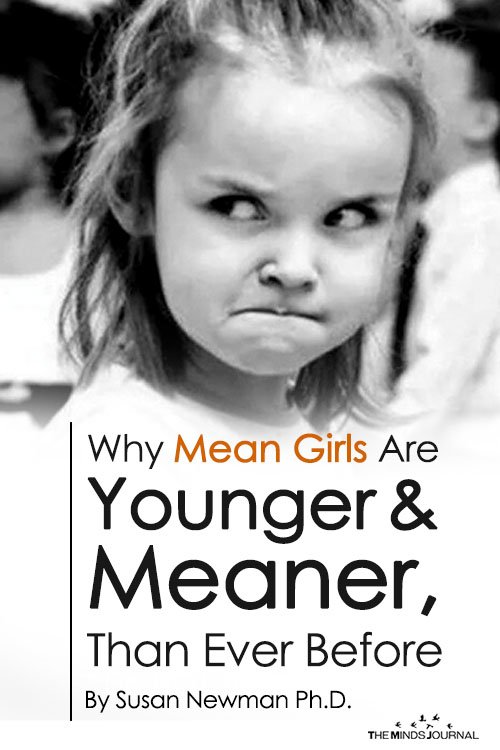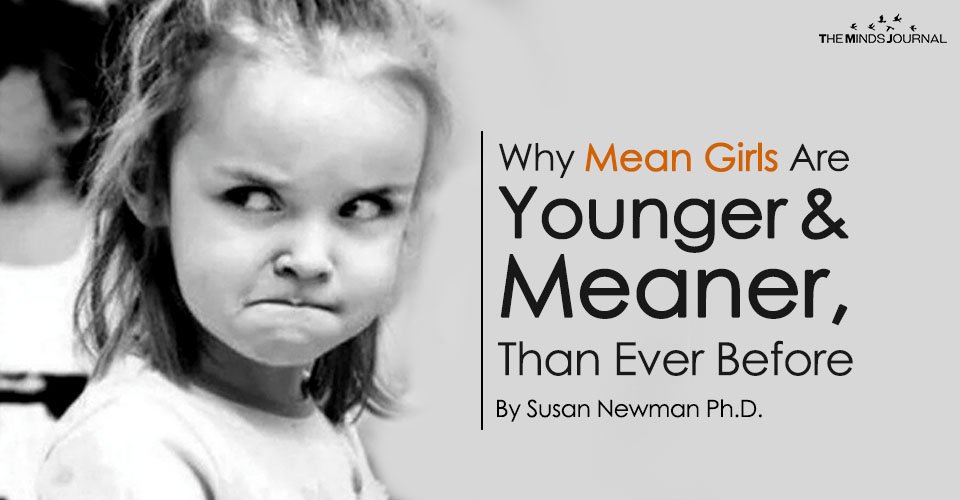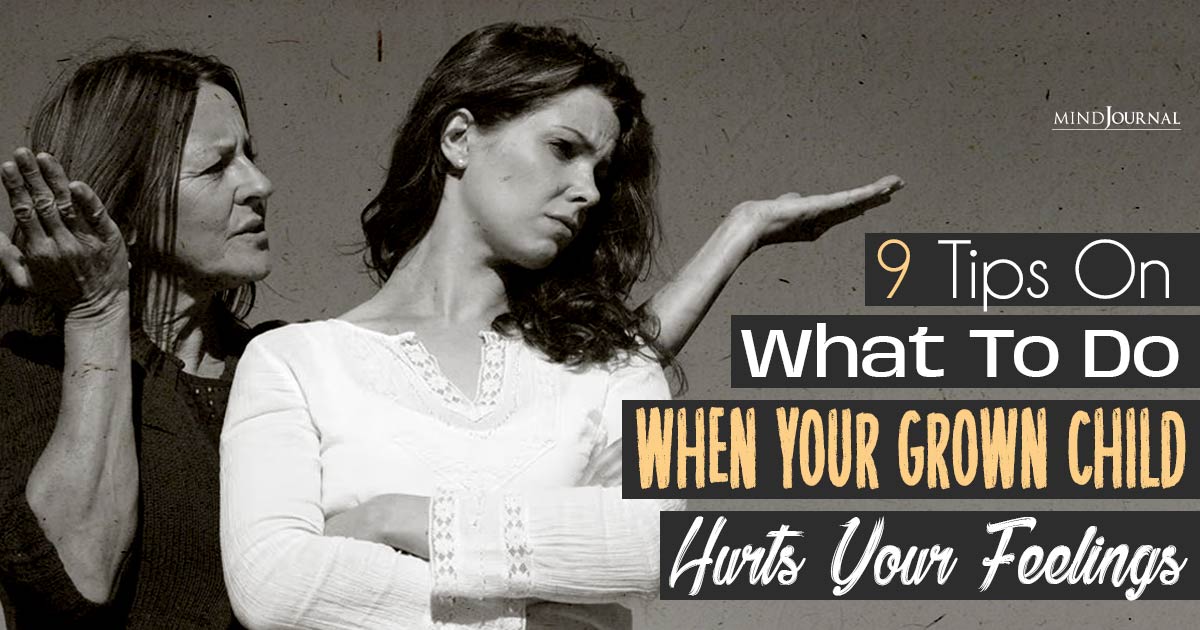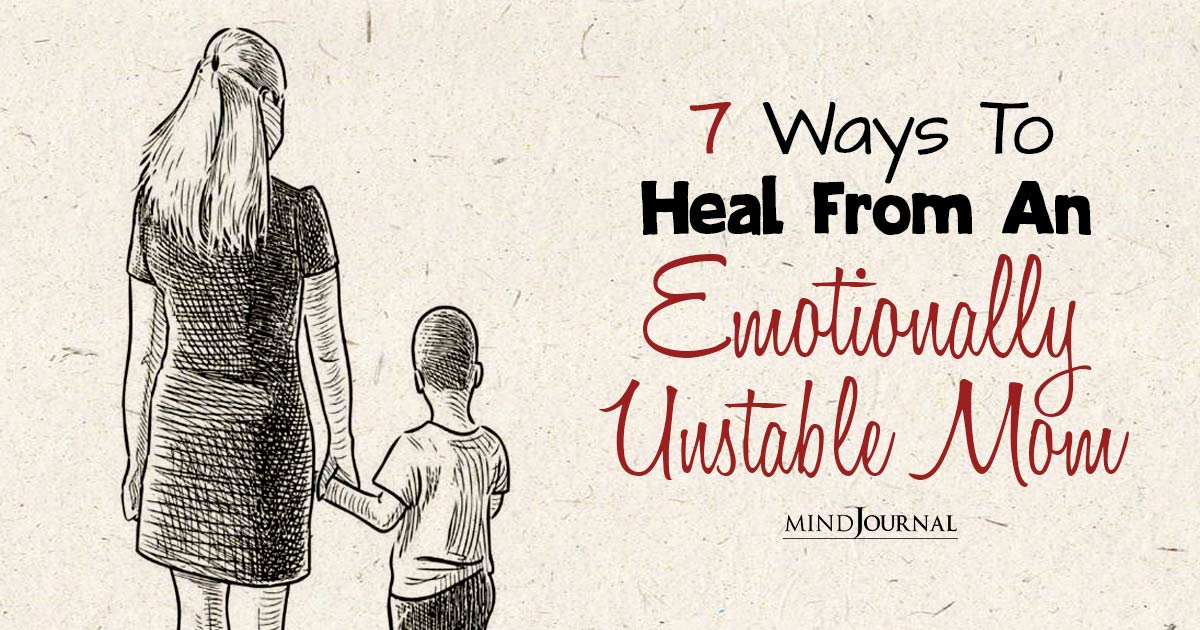How to prevent your daughter from being a mean girl—or being devastated by one.
At what age do girls act mean today? It’s not when it used to be.
I’ve had a good friend for decades, and we are anything but mean to each other. We are totally supportive: We call for advice or simply to listen to each other’s tales of woe. We worry when something is not going well in the other’s life.
Were we always this way? Not really.
But neither of us can recall being overtly mean before high school — and my friend has a laser-sharp recall for events in her life.
But by the time puberty hit, something had changed, and we were excluding girls from our group and gossiping with the best of them, telling others not to vote for someone in a class election or not to invite someone to a party.
These days, we hear of girls at younger ages exhibiting similar “mean girl” behaviors — excluding, isolating, spreading rumors verbally or posting lies online.
It is disturbing to realize that very young children are acting deliberately to hurt classmates and friends.
Admittedly 7-and 8-year-olds may not have the social skills or maturity to understand how their actions hurt others or how to act differently.
That’s where parents come in.
Parental Encouragement Makes a Difference
Jamie Abaied and Sarah Stanger of the University of Vermont investigated the effects of parental input on the social adjustment of girls.
Their study, “Socialization of coping in a predominantly female sample of caregivers:
Contributions to children’s social adjustment in middle childhood,” published in the Journal of Family Psychology, looked at how parents’ teaching of coping skills helped 8-to-10-year-old girls manage stress and followed up six months later to assess their social development.
The youngsters and parents were videotaped as the girls tackled a difficult and frustrating tracing task. Parental encouragement was measured in terms of responsiveness, warmth, and attentiveness as their child worked.
The girls whose parents offered positive encouragement that focused on problem-solving or persistence —
“Take your time, keep trying,” or “Take a deep breath so you can calm down,” or “This is good practice for the next time you do a really hard task” — fared better socially.
They had fewer social problems and higher-quality friendships. When parents were disengaged or encouraged their daughters to stop —
“Do you want to stop?” or, “You don’t have to finish if you don’t want to” — the girls were less able to cope with social problems.
In other words, parents who engaged in positive ways with their daughters were more likely to have daughters who were able to handle the stress and difficulties girls face.
No Longer Just a Teen Problem
As a child and adolescent psychotherapist Katie Hurley writes in her book, No More Mean Girls:
Read 6 Unexpected Strengths From A Tough Childhood: Boons Born In Darkness
The Secret to Raising Strong, Confidence, and Compassionate Girls (link is external) — a guide for parents of girls between 3 and 13 — it is not unusual to hear complaints like this one from 7-year-old Jenna:
“I don’t want to go to school. All the girls hate me, so I’ll just be by myself again while they laugh at me. I can’t take it anymore.”
Relational or social aggression, commonly referred to as bullying, starts early — around third grade, the age of some of the girls at the University of Vermont study.
Parents often feel that their children just have to deal with whatever pressures, insults, and social stigmas come their way.
The thinking is, “I got through the rocky road of barbs and being left out, and so will my child.” But those parents were likely teenagers at the time, in a position to handle such issues with more maturity or perspective.
Hurley points out this isn’t just a teen problem anymore, with younger girls facing bullying in person and on social media.
“What happens in the elementary-school-age years directly affects what happens in the tween and teen years,” she says.
Girls start from a point of weakened self-esteem: 69 percent of girls between the ages of 7 and 21 feel they are “not good enough,” according to a 2016 Girls’ Attitude Study.
Many younger ones already know the pain of exclusion and instant reputation loss via social-media outlets. The same study done in 2017 revealed that half of the 7-to-10-year-olds worried about being bullied online.
A University of Oxford study of boys and girls’ technology use makes the concern over our daughters being bullied seem very wise: Girls aged 8 to 18 spend more time on their cellphones socializing than do boys, who focus more on playing video games.
What Parents Can Do
A parent’s job is to bolster and teach young girls how to be a good friend and to provide the social skills they need to move on after being bullied or left out.
As the Vermont study and many others confirm, parents can make all the difference. They can help girls get ahead of the inevitable anxiety they will face that could squash their self-image and smother their drive.
Hurley believes, “Our girls have the opportunity to put an end to mean girl culture and change the narrative of girlhood for the better, but they need us to guide them along the way.”
A good starting point, Hurley says, is to define the words gossip, teasing, taunting, public humiliation, excluding, cliques, and cyber-bullying.
She adds that you should do this even if your child doesn’t have get screen time or have her own phone.
As much as parents would like to believe — and some say — that they avoid the subject because they don’t want their daughters to worry, the reality is that your daughter probably is worrying about mean behavior because she sees it happening all around her, if not to her personally.
To help you guide your child through the rocky terrain of childhood and the teen years, Hurley recommends:
- Take time to connect with your daughter whatever her age.
- Listen when she talks — really listen.
- Discuss and monitor her social media usage.
- Teach her what you know about friendship.
- Model the power of friendship and unconditional support.
- Support her through the ups and downs she faces.
- Encourage her to work together with friends.
- Explain how to consider a friend’s perspective in a disagreement.
- Show her how to accept her role in a conflict with peers.
- For detailed ways to protect, support and encourage your daughter, see No More Mean Girls (link is external).
Read 3 Do’s and Don’ts for Raising Emotionally Intelligent Kids
Copyright @2018 by Susan Newman
Written by Susan Newman Ph.D.
Originally appeared on Psychology Today
Printed with permission from the author









Leave a Reply
You must be logged in to post a comment.